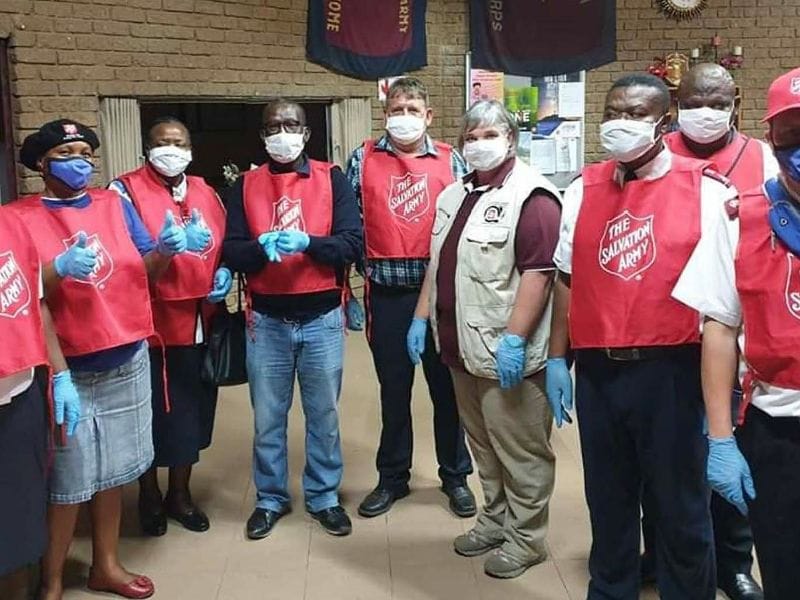
NGOCSTIP – Salvation Army Helps Survivors of Human Trafficking by providing crucial resources to rebuild their lives. As one of the leading global organizations combating human trafficking, the Salvation Army offers direct support to victims of exploitation. With a focus on recovery, empowerment, and reintegration, they help survivors regain control of their lives. Through a combination of immediate care, long-term rehabilitation, and social support, they are making a profound impact on those affected by modern slavery. Their work is a testament to the power of compassion and the importance of collective efforts to end trafficking.
When survivors of human trafficking are rescued, they face numerous challenges. Many suffer physical and emotional trauma and may lose their sense of identity. The Salvation Army provides immediate support by offering safe shelters and emergency services. These shelters protect victims from further harm and give them the time and space to recover. Survivors receive medical care, psychological support, and basic needs like food and clothing. By offering a safe environment, the Salvation Army ensures survivors are no longer vulnerable to traffickers.
“Read about: NTT Police Rescues TPPO Victims from West Java”
One of the first steps in the Salvation Army’s work with human trafficking survivors is providing safe and confidential shelter. Many survivors come from dangerous situations where their personal safety is at risk. The Salvation Army offers shelters that provide a haven for survivors to begin healing. These facilities help survivors regain a sense of security. In addition to physical safety, the shelters provide emotional and psychological support. Trained staff members offer counseling to help survivors address trauma and begin their recovery journey.
Trauma is a major concern for survivors of human trafficking. Many individuals experience deep psychological wounds, including PTSD, anxiety, and depression. The Salvation Army offers psychological counseling to help victims process their trauma. Their counselors are trained to support survivors in overcoming the mental and emotional toll of trafficking. By providing a space for healing, the Salvation Army helps survivors address the lasting effects of their abuse. Survivors can participate in therapy and group sessions, fostering emotional resilience and strength. This care is essential in empowering them to take control of their futures.
Beyond immediate support, the Salvation Army focuses on rehabilitation. Survivors often need extended care to reintegrate into society. Therefore, the Salvation Army’s rehabilitation programs offer education, job training, and life skills courses to help survivors rebuild their independence. These programs are specifically tailored to meet the unique needs of each survivor. By providing personalized care and education, they help individuals reintegrate into society with dignity and confidence. Moreover, these programs equip survivors with the necessary tools to lead fulfilling lives, free from exploitation. In addition, they encourage personal growth and long-term stability.
Legal issues often challenge survivors of human trafficking. Many victims lack proper documentation or fear legal repercussions. The Salvation Army provides legal assistance to help survivors navigate the legal system. This includes helping them obtain identification, apply for immigration relief, and advocate for their rights. The Salvation Army works closely with law enforcement agencies and other partners to ensure survivors’ voices are heard and protected. Their advocacy efforts play a crucial role in securing justice for trafficking victims, ensuring they receive fair treatment under the law.
“Read more: What Parents Need to Know About Impetigo in Children”
Empowering survivors is central to the Salvation Army’s approach. The organization offers vocational training and skills development programs to help individuals regain financial independence. These programs provide survivors with practical skills that improve their chances of securing stable employment. By offering education in areas such as computer literacy, hospitality, or vocational trades, the Salvation Army helps individuals rebuild their lives. The goal is not only to support survivors but also to equip them with the confidence and skills they need to thrive in society.
Reintegration into society can be one of the most difficult steps for survivors of human trafficking. The Salvation Army helps facilitate this process by offering ongoing community support. Survivors are connected with local resources, including housing, employment, and healthcare services. Through partnerships with other organizations, the Salvation Army ensures that survivors have access to the support they need. This holistic approach helps survivors feel connected to their communities and reduces the risk of re-victimization.
While direct assistance is essential, the Salvation Army helps survivors of human trafficking by also raising awareness about the issue. The organization educates the public and creates awareness campaigns to prevent trafficking before it happens. They engage in outreach programs that teach vulnerable populations about the dangers of trafficking and how to protect themselves. Additionally, the Salvation Army collaborates with governments, law enforcement, and other agencies to advocate for stronger laws and policies to prevent trafficking and protect survivors. Through these efforts, the Salvation Army plays a crucial role in both immediate intervention and long-term prevention.